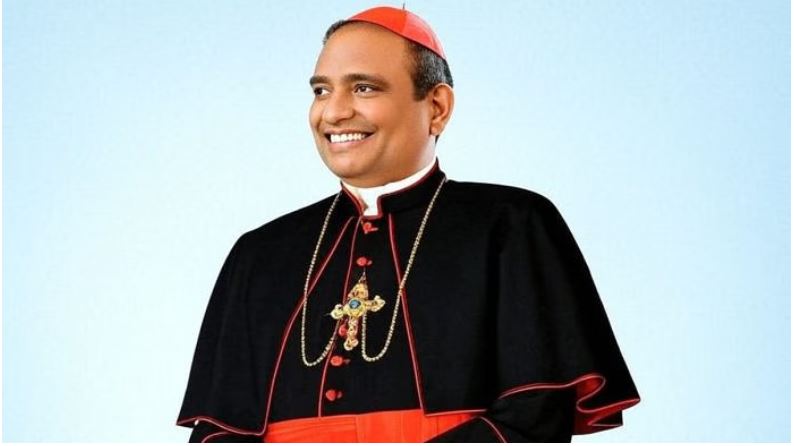As the conclave gathers to elect a new Pope, Cardinal Anthony Poola’s presence will be a powerful symbol for India’s Dalit Christians.
After the death of Pope Francis, the next head of the Catholic Church will be chosen by four Cardinals. Among them, one name that has grabbed the attention of the Dalit Christian community in India is Cardinal Anthony Poola.
Archbishop of Hyderabad Anthony Poola was appointed as the Cardinal-Priest of Ss. Protomartiri a Via Aurelia Antica by Pope Francis on 27 August 2022. Poola is the only Dalit among the 138 cardinals under the age of 80 who are eligible to vote for the next head of the Catholic Church.
While Poola’s role in selecting the next Pope may carry global weight, it holds deep significance for the Dalit Christian community in India. Hailing from a community that has faced systematic oppression for centuries, Poola’s journey to the Vatican stands out amid the dominance of upper-caste leadership.
“The Dalit community expressed their enthusiasm when Anthony Poola was appointed Cardinal. Now that we know he is one of the people who will have a small contribution in choosing the next Pope is a great achievement,” said Dr Prakash Louis, a Dalit Christian social activist, writer, and director of Xavier Institute of Social Research.
Poola’s childhood struggle
Anthony Poola was born on 15 November 1961 in Poluru, in the Diocese of Kurnool, to a poor Dalit family. He was well-acquainted with caste-based discrimination. In an interview with Vatican News, he recalled, “When we go to the higher caste people, sometimes, when we are thirsty, there used to be a well. When we are thirsty, they will pour in our hand, and we have to drink water. But that didn’t make me tired and wasn’t painful. We accepted that social stigma.”
Poola, an avid reader, who still finds joy in exploring varied authors, had a strong interest in studying. But after elementary school, his education was put on hold due to financial constraints. His father could not afford to teach him past eighth grade. He stayed at home for a year and dedicated himself to social work.
At a summer camp, a Dutch missionary recognised his potential and offered to pay for his education. He joined ZP High School, Gadivemula, and completed higher studies at St. Mary’s High School, Kurnool.
The school was far from home, and Poola would walk several kilometres—sometimes barefoot. During this period, he told a priest that he wanted to study finance.
In the same Vatican News interview in 2022, Poola said, “After seventh grade I had to take a break because of poverty. I thought that was the end of my education. But it was mainly missionaries who took interest and brought me to Kadapa and helped me go for education. Therefore, after my BA, I felt that I don’t have any connection with this missionary. But they took charge of me and helped me go to school and made me worthwhile. That is the reason why I want to join the seminary.”
He was ordained a priest on 20 February 1992 in the Diocese of Kadapa. Having experienced caste-based poverty firsthand, Poola committed himself to working for the marginalised. In 2008, he was appointed Bishop of Kurnool and ordained on 19 April the same year.
A love for music and education
While serving as Bishop, Poola wrote lyrics, conducted choirs, and produced devotional Telugu music. His works include albums such as “Sneha Sravanthi,” “Divya Kanthi,” “Jeevanaraagam,” and “Swaranidhi.” He also launched a diocesan newsletter, ‘Kurnool Vani,’ and oversaw the establishment of 11 new parishes.
Poola has always aimed to provide education to the deprived. He ensured basic and higher education for poor children, and even arranged scholarships for them. His life motto is: “Good news to the Poor,” a vision that has earned him admiration among Dalits, who make up 75 per cent of the Indian Catholic Church.
Roydin Roach, former president of the Catholic Union Telangana and a long-time acquaintance, said, “He served all people, not just Dalits. That is why he became popular.”
In his Vatican News interview, Poola recalled working in villages: “These places are very poor and drought-prone areas. When we have to go to the villages, we can only go in the evening as people will go for work during the day. We ring the bell at the church and we gather the children and teach catechism. And people sometimes have to cook and come to the church. So that was wonderful to watch. That made me move with compassion and love, and especially a great responsibility I felt to the children to give them a gift of education because they don’t have money or assets to sell. I am looking into my own life story.”
Speaking out on caste
On 19 November 2020, Poola was appointed Archbishop of Hyderabad. He made a place for himself in the elite group. Despite entering the upper echelons of Church leadership, he has always spoken out against caste discrimination in India and how caste identity plays a vital role in the country’s social fabric.
Dr Prakash Louis told ThePrint, “Cardinal Poola has always spoken his mind. He is making a difference for Dalit Christians. He steered the path. Now his role in the church becomes very important—to make it a safe place for Dalits, tribals, the poor, and women.
As the conclave gathers to elect a new Pope, Poola’s presence will be a powerful symbol for India’s Dalit Christians.
(Edited by Prashant)
Courtersy: The Print
